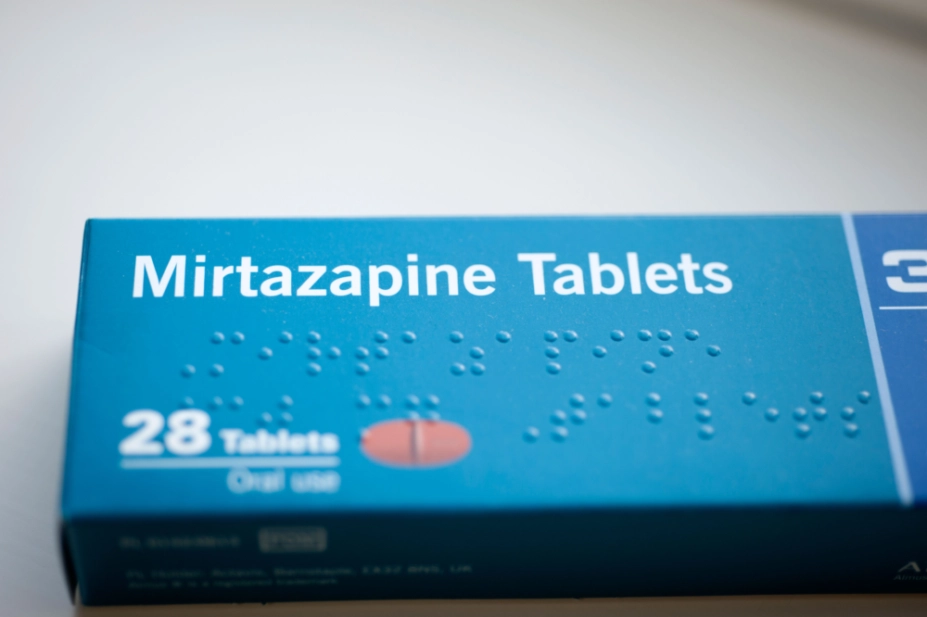
GeoPic / Alamy Stock Photo
The antidepressant mirtazapine offers no benefit in the treatment of agitation in patients with dementia and could increase the risk of mortality, according to a study published in the Lancet.
The study, published on 21 October 2021, described mirtazapine as one of the most widely prescribed antidepressants in older people.
As part of the Study of mirtazapine for agitated behaviours in dementia (SYMBAD) trial — a double-blind, placebo-controlled trial — researchers recruited 204 participants from 26 NHS clinical centres in the UK.
Each participant had probable or possible Alzheimer’s disease; exhibited agitation that was unresponsive to non-drug treatment; and had a Cohen-Mansfield Agitation Inventory (CMAI) score of 45 or more (out of possible scores ranging from 29–203).
The CMAI is a 29-item questionnaire used by a patient’s carer to systematically assess levels of agitation. The authors said that their rationale for using the measurement was because it is the most commonly used instrument in trials for agitation in dementia, with robust psychometric properties including responsiveness to change.
Participants were randomly assigned to receive either mirtazapine (titrated to 45mg) or a placebo, with an aim to measure whether participants experienced a reduction in their CMAI score after 12 weeks.
The researchers found that, although there was a reduction in both sets of scores after 12 weeks, the mean CMAI scores were not significantly different between participants in either group (adjusted mean difference -1.74, 95% confidence interval -7.17 to 3.69; P=0.53).
Adverse events were also found to be similar across the two groups, but the researchers observed more deaths in the mirtazapine group (n=7) by week 16 than in the control group (n=1).
Although post-hoc analysis suggested this difference was of marginal statistical significance (P=0.065), the authors said that the observation provided “further reason” for caution in the use of mirtazapine for this indication.
“Data from this study support the active monitoring of agitation in dementia without the prescription of medication as recommended in guidelines for depression,” the authors wrote.
“Antipsychotics and SSRIs [selective serotonin reuptake inhibitors] are associated with substantial harms when used for the treatment of agitation in dementia.
“This study suggests that substituting the sedative antidepressant mirtazapine to avoid such harms is not a clinically effective strategy.”
The authors also explained that the causes of agitation in patients with dementia were “heterogenous and multifactorial”, and included reasons such as unmet needs, medical episodes, prescribed medication and environment.
Therefore, the authors said: “The fundamental presumption that there is a single neurobiological basis for agitation and therefore a specific drug that will target it, even in people with narrowly defined Alzheimer’s disease or those with closely defined symptom clusters, seems particularly weak.”
Sube Banerjee, executive dean of the Faculty of Health and professor in dementia at the University of Plymouth, and lead researcher of the study, said that poor quality of life in patients with dementia was driven by problems such as agitation.
“We need to find ways to help those affected,” he said.
“This study shows that a common way of managing symptoms of dementia is not helpful — and could even be detrimental.
“It’s really important that these results are taken into account and mirtazapine is no longer used to treat agitation in people with dementia.”
Anne Child, pharmacy and dementia specialist lead at the Royal Masonic Benevolent Institution Care Company, which operates 18 care homes in England and Wales, said that, in her experience, providing optimal care for patients with dementia requires a “holistic view”.
“Medicines are one tool in the box but it’s about the global care of the person – you should have a structure that accesses all the different levels of intervention.
“The very act of putting people into a care home may or may not produce environmental pressure and [although] non-pharmacological routes have become more recognised they are still not understood and are not facilitated [enough].
“It all comes back to the idea of social prescribing and tailoring [care] for individual patients.”
“[But] understanding the wider holistic global approach to how peoples’ needs are met needs more research – we have such a long way to go in this area of understanding.”
National Institute for Health and Care Excellence (NICE) guidance, published in June 2018, recommends that before starting any treatment — pharmacological or non-pharmacological — for distress in people living with dementia, a structured assessment should be carried out to explore possible reasons for their distress, and address clinical or environmental causes.
For people living with mild-to-moderate dementia, NICE recommends offering group cognitive stimulation therapy, as well as considering group reminiscence therapy, cognitive rehabilitation or occupational therapy.
However, in February 2020, The Pharmaceutical Journal revealed that less than half of acute trusts offer one or more of the therapies recommended by NICE, and just under a fifth (17%) offer all of them.
Read more: Storytelling, music and song: how psychosocial approaches to dementia change lives


